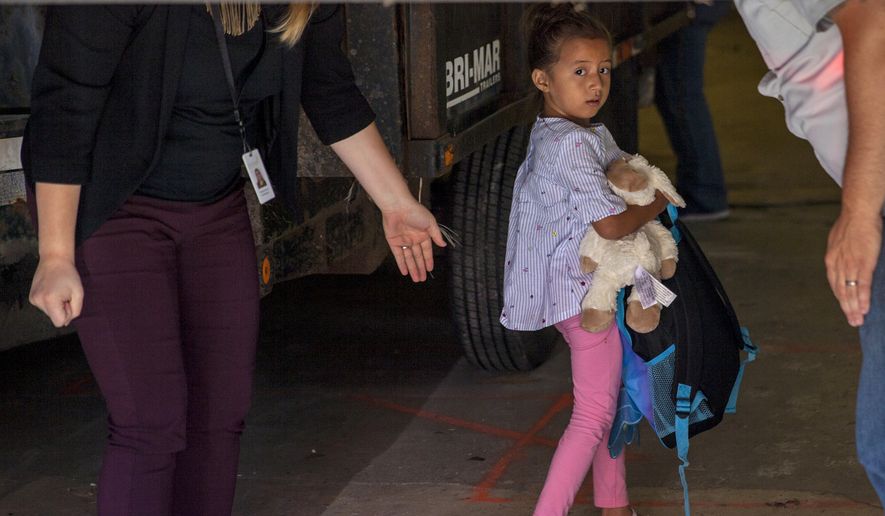The federal health department said Friday there are 2,551 more children who may need to be reunited with their parents by July 26, laying out the parameters of the gargantuan task ahead of them.
A top Health and Human Services Department official suggested they can’t reunite them all and do the critical safety checks, such as ensuring that the adults really are the children’s parents, in time to meet the deadline.
They will stop DNA testing and won’t even require documentary proof, instead relying on a 15-minute interview with adults to determine if they are in fact the parents of the children they’re trying to claim.
That provoked an angry rebuke from U.S. District Judge Dana Sabraw, the man who set the strict deadlines and who said the government better find a way to do more serious checks, and to do them quickly.
And he refused to accept blame for forcing the matter, saying he sees no room for leeway on his July 26 deadline.
“Safe and timely reunification of class members and their children can, and will, be done by the court’s deadline,” he wrote in a stern order Saturday. “There is no reason why one of these goals must be sacrificed for the other given the vast amount of resources available to the federal government. The task is laborious, but can be accomplished in the time and manner prescribed.”
The back-and-forth marks an escalation in the legal battle over reuniting the children separated in the chaos surrounding President Trump’s zero-tolerance policy.
The government managed to reunite 57 of the 103 very youngest children — those under age 5 — almost on time for last Tuesday’s deadline.
But in 12 of those cases the government didn’t complete DNA tests, so it’s not certain that the adults who claimed the children were in fact parents.
Christopher Meekins, the HHS official overseeing reunification, said they were acting according to what they thought were the judge’s orders, saying they figured meeting the deadline was more important than being 100 percent certain of parentage.
Now, with just a week and a half to go now before the deadline with the more than 2,500 other juveniles ages 5 to 17, the government says it’s still struggling with exactly what corners it will have to cut.
Mr. Meekins said there’s no way to do full DNA testing on the 2,500 parents and their children, saying in his filing that this would “stretch the time required to comply by months (not just days or weeks).”
There’s also no time to check to make sure the parents have adequate care plans in place, or to do background checks on other adults in the homes where the parents plan to live, Mr. Meekins said.
But he warned children will be placed in danger by following the judge’s orders.
“First, there is an increased risk that HHS will place a child with someone who falsely claimed to be a parent but is not,” he said in a sworn declaration to the court. “Second, there is an increased risk that HHS will place a child with a parent who presents a danger to the child.”
He also cited risks of parents taking children to live in homes with child abusers — a situation that almost happened with one of the under-5 children, until the government detected the situation by doing a routine background check.
Those checks are one of the casualties of the judge’s order, he said.
The clash between the government and Judge Sabraw has been looming for weeks.
The judge has inserted himself deeply into the government’s operations, yet has been coy about his exact demands for safety checks, leaving the government guessing as to what he would allow.
The judge has also at times forgotten who actually qualifies as part of the class action lawsuit he certified, further complicating matters for a government already struggling to clean up its own mess from the zero-tolerance policy.
Judge Sabraw says he’s trying to leave the government some discretion while insisting that it meets his deadlines, and he said Saturday that the government is abusing that leeway.
“HHS appears to be operating in a vacuum, entirely divorced from the undisputed circumstances of this case,” he said.
• Stephen Dinan can be reached at sdinan@washingtontimes.com.




Please read our comment policy before commenting.